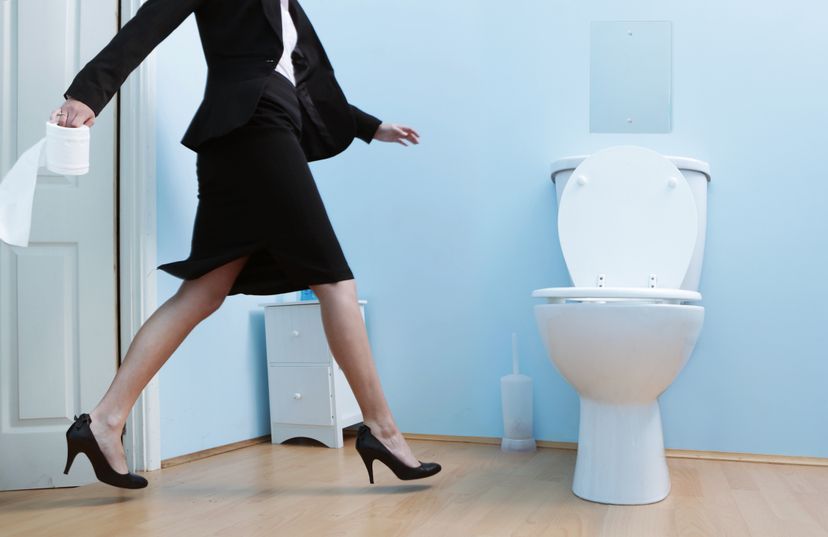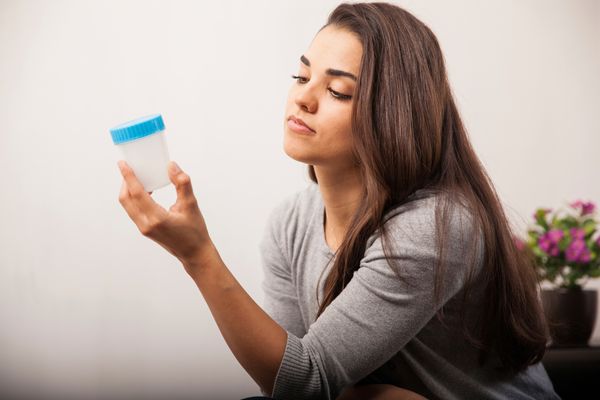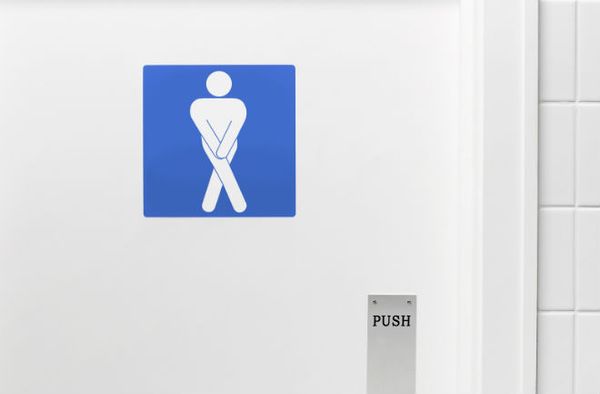
You're driving home from work and everything is fine — until you get to your front door. Then you suddenly have an overwhelming urge to pee. Can you get inside and to the bathroom before it's too late?
There's actually a name for this condition — it's called "key in lock syndrome" or more formally, "urge urinary incontinence."
Advertisement
"Women who have this urgency type of incontinence plan their day carefully, making sure they are never too far away from a bathroom," writes incontinence expert Dr. Mark Smith on the website ObGyn.net. "When women arrive home with their arms full of packages and put the key in the door, they abruptly develop a strong urge to urinate. If they don't drop everything and head to the bathroom they will lose their urine, often even while trying to get to the bathroom."
Although it primarily affects women, the problem is one experienced by both sexes. In fact, at any given time, between one-quarter to one-third of Americans experience some type of urinary incontinence, or the uncontrollable leakage of urine. Risk definitely increases with age, but pregnancy and childbirth (C-section or vaginal) also play major roles by weakening the pelvic muscles. Less common, but more serious causes include infection, bladder inflammation, bladder cancer, bladder stones, prostate problems (in men), among others.
However, most of the time a specific culprit is never identified, leading researchers to believe that the bladder isn't the sole problem. Since age can be a significant factor, University of Connecticut researchers are currently looking at how getting older affects the communication between brain and bladder.
"Just how does the brain talk to the bladder, and how can we adjust this communication should it start to fail, in order to help our patients?" asks Dr. Phillip P. Smith, a surgery professor at UConn Health's Center for Continence and Voiding Disorders, in an article at the website UConn Today. "Current available treatments are not fully addressing our patient's overarching urinary problems, because it's not just about the bladder."
When they're working together correctly, the bladder sends signals to the brain letting it know how full it is. When necessary, the brain tells the bladder muscle to contract and release the urine, otherwise it directs the organ to hold it. Some people experience a systemic breakdown, however, and this can cause their bladders to release when they're not ready to do so — like when they pull up to their front door. Smith's group is researching how the brain communicates with the bladder. He speculates that with aging, the "pacemaker" system in the brain that tells the bladder when to go may malfunction in some people.
So, what should people do? Even though the bladder is controlled by the brain, it is still a muscle, which means basic healthy lifestyle practices, like exercising regularly, eating a good diet and staying hydrated, will help to keep it functioning at peak potential.
In addition, medication, bladder retraining (perhaps with the help of a specially trained physical therapist) and avoiding smoking can also be beneficial. Experts recommend that women do Kegel exercises (see sidebar) to strengthen the pelvic floor. Bladder surgery would be a last resort.
Another solution is to practice great bathroom habits. Try to follow a loose urination schedule. (You should really urinate once every three or four hours.) "We have all heard that voiding on a schedule rather than just when you have to go is better. And we know no one ever thinks about it that way," says Dr. Stephen Gregg with the National Association for Continence in an email.
Finally, don't go to the toilet as soon as you get the urge. Train yourself to wait five minutes more and then longer over time. Filling up the bladder with more urine stretches it and allows it to hold more liquid, thus cutting down on your numerous bathroom trips.
Advertisement

